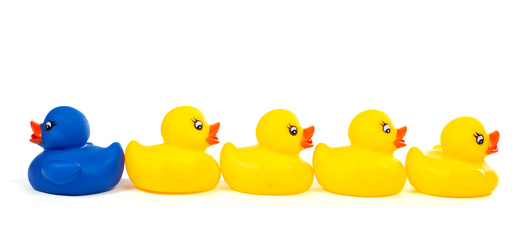The Amazing Power of a Label in Family
Labels help us explain things like our occupation, food, or moods. After all, it is much easier to say, “I’m a therapist (or teacher or chemical engineer or accountant)” than it is to explain all  the nuances of what you really do. At the same time, labels can limit us. Kierkegaard once said, “Once you label me, you negate me.” Think about this in terms of your family. Perhaps you have two children. For whatever reason, one becomes the “responsible child” and the other “impulsive-child;” or, one is labeled the “problem-child” while the other is your “happy child.” Once we apply any of these labels to our children, we have successfully put them in a box. We come to expect behavior that will match their assigned label. We filter their actions and their words through our expectations. We even filter our response to them through that filter. Since we expect the “responsible child” to do what is expected, we may forget to thank them for taking the responsible action. On the other hand, we give our “impulsive child” a “left-handed compliment” (“Oh, you finally remembered to do it”) for completing an expected chore. You could say that our label turns into an expectation that becomes a judgment. That judgment sentences our child to develop a style of character consistent with our expectation. The label has become an integral part of their self-image and that self-image will follow them into adulthood. This same process occurs in response to any label we might use with our family member, whether it be the label of “joker,” “problem-child,” “happy child,” “smart child,” “athlete,” or “musician.” In the end, the label will limit our family member’s overall behavior. After all, it is difficult for a “problem-child” to become known as the “helping-child.” How can we avoid limiting our family members through labels?
the nuances of what you really do. At the same time, labels can limit us. Kierkegaard once said, “Once you label me, you negate me.” Think about this in terms of your family. Perhaps you have two children. For whatever reason, one becomes the “responsible child” and the other “impulsive-child;” or, one is labeled the “problem-child” while the other is your “happy child.” Once we apply any of these labels to our children, we have successfully put them in a box. We come to expect behavior that will match their assigned label. We filter their actions and their words through our expectations. We even filter our response to them through that filter. Since we expect the “responsible child” to do what is expected, we may forget to thank them for taking the responsible action. On the other hand, we give our “impulsive child” a “left-handed compliment” (“Oh, you finally remembered to do it”) for completing an expected chore. You could say that our label turns into an expectation that becomes a judgment. That judgment sentences our child to develop a style of character consistent with our expectation. The label has become an integral part of their self-image and that self-image will follow them into adulthood. This same process occurs in response to any label we might use with our family member, whether it be the label of “joker,” “problem-child,” “happy child,” “smart child,” “athlete,” or “musician.” In the end, the label will limit our family member’s overall behavior. After all, it is difficult for a “problem-child” to become known as the “helping-child.” How can we avoid limiting our family members through labels?
· Do not use global labels. Instead, label specific behaviors. For instance, rather than thinking about your “problem-child” think about specific areas in which your child “gives you problems.” Perhaps your child poses difficulties around specific activities like math homework or eating certain foods. They probably are a pleasure in other areas…which brings us to the next point.
· Think of exceptions to the label. If you have a “problem-child,” think of all the times they do not pose a difficulty. In what areas do they exhibit strengths and show themselves a “helper” or a “peacemaker.” I realize that it may take effort to think of exceptions after you have told your “messy-child” for the umpteenth time to “clean your room.” But, when you remember examples of the times they were the “helper” or the “problem solver,” you will have a more realistic and holistic view of your child.
you remember examples of the times they were the “helper” or the “problem solver,” you will have a more realistic and holistic view of your child.
· Keep any labels you use flexible. Realize that your children will change and grow. Any label that seems to fit your child today is temporary…you may find it untrue tomorrow.
· Provide opportunities for your children to grow. Let them tell the jokes or be the center of attention sometimes and, at other times, the quiet-behind-the-scenes observers. Teach them to be the helper as well as the recipient of help. Encourage them to enjoy athletics to the level they enjoy as well as music, art, and academics. Giving your child the opportunity to fill many roles will help them realize (even expand upon) the complexity of their personality.
As you expand your view of each family member, you open up future possibilities for them. You let them out of the label box to explore other ways of acting in the family and the world. You open up the possibility for them to develop deeper and more complex character…. And, isn’t that the goal of parenting?
